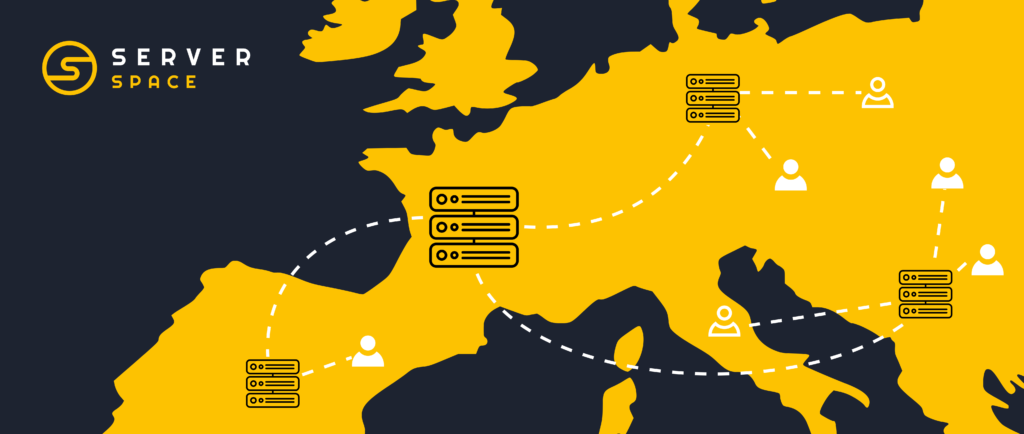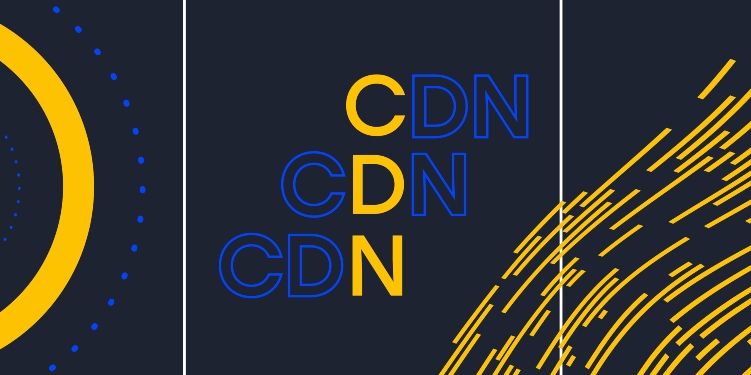With the rapid expansion of the World Wide Web and its digital materials, the speed and accessibility of internet resources have become essential elements for users across the globe. Slow-loading sites, particularly those containing large media files like photos and videos, result in users abandoning web pages. The speed of page loading has become one of, if not the most, important factor in today’s tech landscape when it comes to user interaction, and consumers display increasing meticulousness towards the content they’re interacting with – as studies suggest that modern users only wait around 2 seconds for a website to completely load.Copy HTMLCopy text.
To tackle these challenges, businesses are increasingly relying on CDNs (Content Distribution Networks). And while its idea may seem complicated at first, it’s actually quite straightforward when it comes down to execution.
So how does it work?
Contrary to popular belief, internet data doesn’t simply hover freely in the sky. Instead, it’s stored on special machines in data centres scattered throughout the globe. A CDN is just that – a network of geographically dispersed and interconnected servers that host data for a specific website or a company. Rather than fetching information from a distant central server, users connect to the one most accessible, decreasing lag and accelerating load times. Essentially, nearby CDN servers fast-track large file transfers like recordings or photographs straight to the user device.
For example, pressing ‘Play’ while watching a video on YouTube starts loading content onto your computer. In a world without a CDN your request would be sent to the primary server of Youtube, potentially located far away, resulting in long wait times. But with the help of CDN technology, the content is retrieved from the nearest available server. So, if you’re trying to connect to an American platform from Europe, your inquiry will be processed by a local server rather than one across the ocean, diminishing buffering and guaranteeing smooth playback.

Why do businesses require a CDN?
As the scale of stored data volumes gets amplified, turning the internet into a globalised infrastructure, CDNs become ever more crucial for delivering quick and steady functionality, whether for large platforms or smaller sites. When it comes to major companies, CDNs are especially critical in areas like online retail, media entertainment, broadcasting platforms, and cloud technologies. CDNs enable businesses to enhance operations effectively while maintaining a seamless and refined UX around the globe. Here’s how CDNs benefit significant players in the industry:
Quicker site load times: For online retailers like Amazon or Temu, each moment in website loading delays leads to lost sales. CDNs help companies distribute content quicker by delivering it not from its source base, but rather from the server based near the request region, upgrading customer service and boosting conversions.
Worldwide readiness for digital content and broadcasting services: Platforms like Apple Music, Twitch and Hulu depend on CDNs to provide accelerated delivery of content to users all around the planet. This ensures them to stream without lags and interruptions, independent of where the user is located, allowing these platforms to retain an extensive user base even at times of increased traffic.
Safeguarding against data flow peaks and DDoS attacks: CDNs aid with defending large businesses by distributing traffic across several machines, lowering the risk of overloading during sudden traffic surges. For platforms like Facebook Marketplace or CDiscount, which experience increased traffic during promotions or sales events, CDNs manage the load while also shielding against DDoS attacks by filtering harmful traffic.
Lower infrastructure costs: Companies like Microsoft and Google leverage CDNs to significantly reduce server infrastructure expenses. Instead of constructing data centres all over the world, they use CDN networks to optimise content delivery and minimise storage and processing costs.
To sum it up, CDNs help companies, big and small, optimise content delivery speed, security and scalability, therefore amplifying client satisfaction while cutting operational costs, thus providing a competitive advantage in today’s global marketplace.
VoD and CDN: A Growing Trend
As popularity of online videos grows, Video on Demand (VoD) becomes a key way for customers to consume media the way it suits them best. VoD systems store videos digitally on servers, and CDN technology ensures swift, ceaseless streaming, including if lots of people are viewing it at once. As more high-definition content get posted, CDNs start playing a more important role in meeting modern user expectations for seamless, lag-free viewing. For instance, a new feature of Serverspace – their VoD service – allows users to spend bare minutes to set up required configuration for their platforms via a simple control panel.
Quoting German Leontev, a managing director at Serverspace:
“In the future, CDN services will evolve towards even greater speed and adaptability, ensuring seamless delivery of content of any size and quality, including 4K and VR, globally. As video, cloud services, and gaming usage grow, CDNs will integrate new technologies like edge computing and artificial intelligence to optimise delivery routes and enhance user experience”.
As CDN gains prominence, its vendors start playing a critical role in providing high-quality internet access. Now they offer solutions to manage high user activity volumes, ensuring high-speed page loading and uninterrupted video broadcasting.
Let’s highlight the top 3 companies in Europe, who you can trust to deploy this technology on your platform:
Serverspace – A cross-border cloud network vendor with presence touch points ranging from Europe to Brazil and beyond with a simple control panel for quick CDN integration alongside other solutions.
OVHCloud – A European cloud company, the services of which go above and beyond VPS servers of all types and configurations, CDN networks and DNS hosting. The solutions provided by this distributor can be applicable both to small and large sized businesses.
Leaseweb – A cloud infrastructure supplier, whose main focus lies in providing secure and reliable VPS servers, as well as CDN and other web services.
In today’s state of technological advancements in the industry, Content Delivery Networks (CDNs) are integral for ensuring fast and dependable data transmission. And since data volumes grow and users demand higher quality, CDNs will only continue to evolve, incorporating advanced technologies like AI to manage increased traffic and maintain high-performance standards as the internet expands.
David Prior
David Prior is the editor of Today News, responsible for the overall editorial strategy. He is an NCTJ-qualified journalist with over 20 years’ experience, and is also editor of the award-winning hyperlocal news title Altrincham Today. His LinkedIn profile is here.





![7 Best POS Software in the UK [2026 Edition]](https://todaynews.co.uk/wp-content/uploads/2026/02/7-Best-POS-Software-in-the-UK-2026-Edition-360x180.png)























































![7 Best POS Software in the UK [2026 Edition]](https://todaynews.co.uk/wp-content/uploads/2026/02/7-Best-POS-Software-in-the-UK-2026-Edition-350x250.png)














